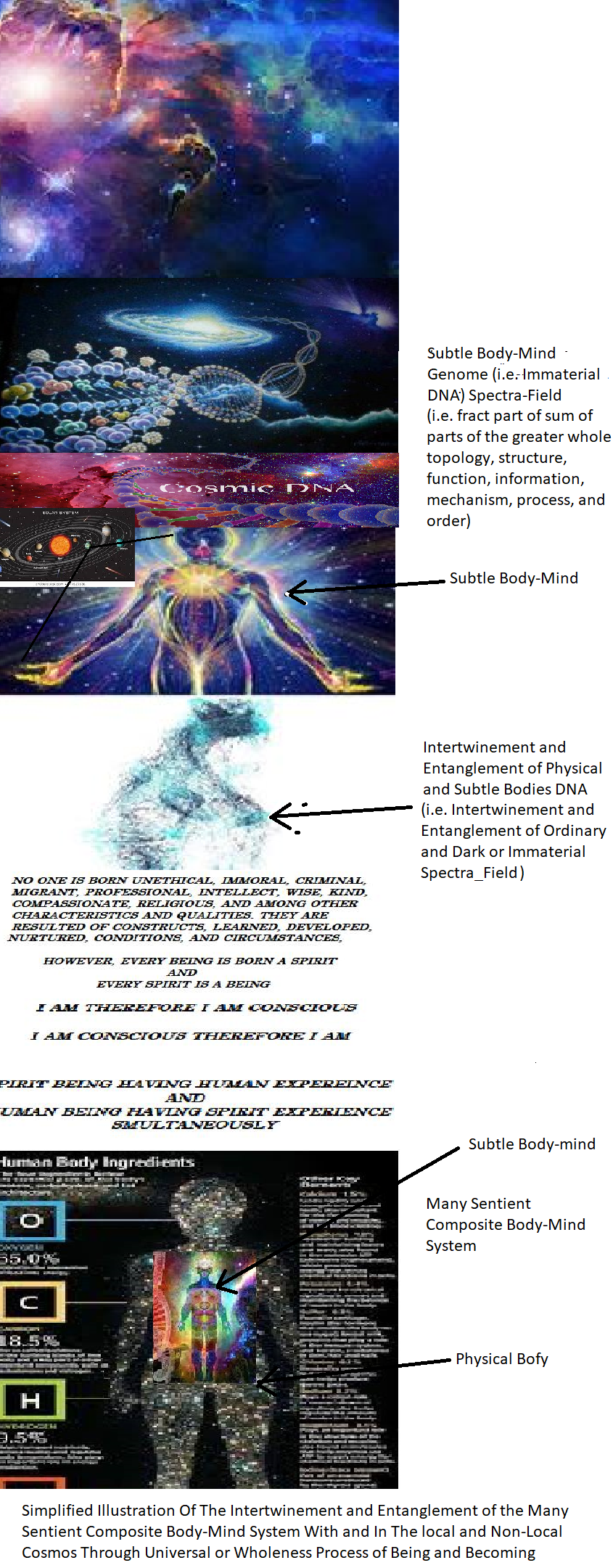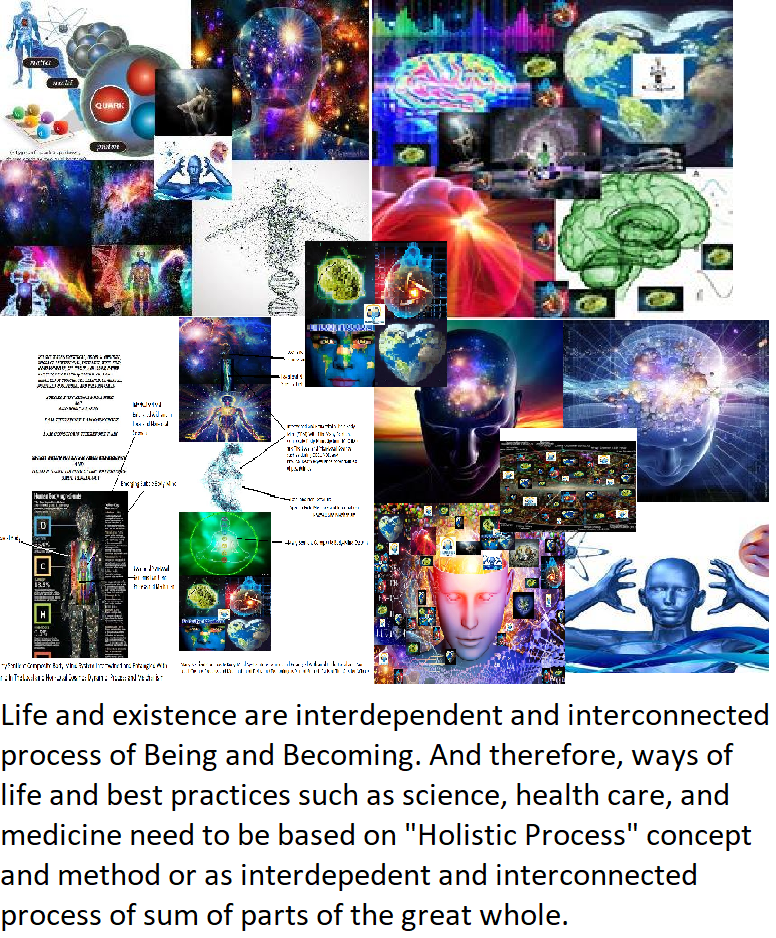|
This brief and simplified discernment is to complement the following presentation https://www.youtube.com/watch?v=u_q8fVYsX6g as well as to further elaborate on previous discernment https://www.epistemologyontologyfoundationinstitute.org/local-and-non-local-blog/brief-and-simplified-discernment-on-buddhism-and-avaita-vedanta-philosophy. Basically, the perceived differences are due to many factors such as:
1.0 The content and context were developed or constructed during different era or multiple stages which implied different mind due to such as language, culture, societies, environment or geography, education system, and among other development and living effects. And therefore, perception and experience of the world. and among others. 2.0 People and communities or practitioners identified with the content and context rather than with the essence. 3.0 Naturalness-spiritual languages or constructs are not the same as daily languages-interfaces (as in 2.0). They are representation and correspondence between realms and worlds since naturalness-spiritual experience can be new and or unique. And in particularly out of this known physical world experience. 4.0 Experience is far different from knowledge (without experience) in many ways. And which is why the Dalai Lama mentioned and encouraged on many occasions through essential and meaningful practices such as heartful care and mindful care meditation, contemplation, and scientific explorations and analyses. 5.0 Words or definitions are used loosely, relatively, missinterpreted, forbidden and hidden knowledge and practices, and or due to competitive advantages For example, Advaita Vedanta used phrases such as "We Are All Connected to the Divine", "We Are All One", "We Are Parts of The Whole", and among other equivalent metaphors or paraphrases. And which implied that an individual is part of sum of parts of the greater whole but definitely not the greater whole. However, had been misconstrued or misperceived as an individual is god or even the whole which definitely is not nature of reality and truth. And as well as clearly totally contradicting all expressions, concepts, and or philosophies of the sacred and divine such as those just mentioned. Another example is permanence and atman and impermanence and anatman. As previously discerned, they are both correct since the real self or emerging subtle body-mind (as in universal genome) has the potential for eternal (equivalent to permanent existence as in universal genome https://www.epistemologyontologyfoundationinstitute.org/local-and-non-local-blog/brief-suggestion-on-human-and-machines-consciousness-and-rights, https://www.epistemologyontologyfoundationinstitute.org/nature-decode/brief-discernment-on-universal-genetic-code, https://www.epistemologyontologyfoundationinstitute.org/nature-decode/toward-universal-genome-and-evolution-beyond-the-known-physical-world, https://www.epistemologyontologyfoundationinstitute.org/nature-decode/brief-suggestion-on-genetic-modification-and-patenting) potentialities of possibilities through dynamic transformation-evolution (equivalent to impermanence or nothing has its own intrinsic inherent independent existence (https://www.epistemologyontologyfoundationinstitute.org/nature-decode/bried-and-simplified-discernment-on-universal-process-of-being-and-becoming) as in body-mind or the many sentient composite body-mind system is constantly in flux just as the cosmos. And long known scientific and empirical facts) as part of sum of parts of the the greater whole or facilitating by the greater whole through universal process of being and becoming. However, even through both are correct, they have to be complemented or fused in order to properly represent and correspond or to realize and actualize nature of reality and truth. 6.0 However, there is another critical cause. And that is depending on the tradition, philosophies or concepts are used valiantly or some are more important, developed, emphasized, and practiced than others. And therefore, became more or less reductionist and dualist practices rather than non-dual holistic or wholeness practices. 7.0 In addition, the scientific knowledge and practices have not been or were not integrated. And which also implied standard and common definitions (and practices) across development and living spectrum are impossible. Basically, moral and ethics in Buddhism and Advaita Vedanta have many common cores. In addition, the many philosophies is basically more or less equivalent such as in both, meaningful and purposeful conceptual solutions and intentional efforts to sufferings, loving kindness-compassion, non-violence, peace-harmony, truth, empowerment, liberation, and well being are core practices. And as well as concepts or philosophies such as emptiness, form-formless, non-dual, heart and mind development and care, indeterdenpendent and interconnectedness of the world, and essence, nature, and ground of being existed in both. However, they are constructed and perceived as much different due to aspects or variants mentioned in 1.0-7.0. Therefore, realizing or recognizing the commons or commonality are reasons and opportunities for unity and collaboration to strengthen and complement each other as well as the whole toward the common and greater good rather than causes for schism and divisiveness. Another way of saying is all the tribalism-schism, malptractice, harm, injustice, and suffering over the millenniums despite the core philosophy is more or less basically equivalent or common. And as such, the falsely perceived differences were due to the many flaws in the individual and collective psy and development-living. |
AuthorEpistemology of Life and Ontology of Existence Foundation and Institute Archives
November 2023
Categories |
- WELCOME AND GREETINGS
- Home
- About
- NEW
- News
- Global_Community_on_COVID
- Initiatives
- Philosophy and Science
- Nature Decode
- The Great Transition Toward Greatness
- GLOBAL COMMUNITY NON-LOCAL EXISTENTIAL BEING AND BECOMING DEVELOPMENT AND lLIVING CAMPAIGN
- Nature of Reality and Truth
- Declaration and Manifesto
- De-Evolution and Existential Risks:
- Holistic Social Engagement and Act ivism
- New Initiatives and Campaigns
- Events
- Journal on Philosophy and Science of Heart and MInd
- Local and Non-Local Blog
- Journals
- Partner
- Complementary Link
- Epistemology and Ontology
- Global Science, Technology, and Innovation Movement
- Non-Local Philosophy and Science Beyond the Macro and Local World
- Philosophy and Science Beyond The Observer World
- Future Science and Technology
- Metaphysics and Phenomenology
- Consciousness and Mind Philosophy and Science
- Integration and Evolution ofl Science and Naturalnss- Spiritual
- Consciousness
- Senses, Heart, Brain, Mind
- Metaphysics and Phenomenology
- Integral and Evolution of Science and Spiritual
- Many Composite Body-Mind System
- Naturalness, Spiritual, Essence-Nature-Ground Of Being
- Integration Inner and Outer Sciences
- Mindfulness_Heartfulness_Consciousness_Spiritfulness Transformation-Living
- Follow Your Passion
- Be The Change and Parts of Solutions and Transformations
- Transcendence and Non-Locality Journal
- Multimedia Resources and Global Teams and Communities
- Contact -Greetings
- Global_Community_On_Covid_1
- Global_Community_On_Covid_2
- Global_Community_On_Covid_3
- Global_Community_On_Covid_4
- New Page
- Global_Community_On_Covid_5


 RSS Feed
RSS Feed
